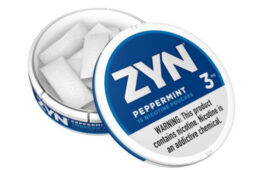Looming regulations may threaten growth.
By Howard Riell, Associate Editor
The cigar category continues to see solid growth in the face of looming threats of additional regulation aimed squarely at popular flavored varieties.
Less-expensive cigarillos continue to move fastest, though premium cigar manufacturers have upped their game by releasing new flavors that have gained in popularity.
To maximize sales, it remains important for retailers to keep making the most of flavored items and limited time offers, as well as regional preferences and popular price points.
According to data providerIRI, for the 52-week period ending Dec. 2, 2018, the convenience store channel saw sales of cigars reach nearly $3.5 billion, an increase of 11.04%. In comparison, cigarette sales for the same period rose by just .08%.
More than half of cigar sales are to white males between the ages of 25-44. The strongest sales continue to come from pre-priced pouch cigarillos and Black & Mild singles. Multi-pack deals provide great value for the consumer by offering additional product for a small increase in cost.
“While total nicotine category sales overall declined by 1.9%, large cigars were the strongest growing traditional tobacco category at 7.1%, and achieved an even greater growth of 9.6% in the convenience/gas channel,” said Don Burke, senior vice president of information management solutions for Management Science Associates Inc. (MSA) in Pittsburgh.
On a share basis, Burke continued, cigarillos grew from a share of 17.7% of the nicotine delivery category in third quarter of 2017, to a share of 19.3% in third quarter of 2018. “In contrast, the little cigar category (packaged similarly to a pack of cigarettes) declined by 2.7% in 2018, due to tax increases in parts of the country making the tax rates on small cigars more aligned to that of cigarettes.”
Burke, who presented the webinar “Trends & Insights in the Nicotine Delivery Category” to members of the Convenience Distribution Association in November 2018, said cigarillos are selling best, particularly those either pre-priced or marketed at popular price points. On the other hand, he added, “The little cigar category performed worse than the large cigar category in 2018.”
NAVIGATING CHALLENGES
“The cigar business is a difficult business to navigate,” said Jonathan Ketchum, vice president of retail for Energy North Group Inc., which owns and operates about 20 c-stores in Massachusetts, New Hampshire and Maine. “There are constant changes in laws that vary by state, along with new and innovative products that are introduced throughout the year.”
With the implementation of new planograms from its category captain, Energy North grew its cigar sales by 13% in 2018. According to Ketchum, his company began working with a category captain this year—Swedish Match—to improve its product selection and navigate the unique challenges it was facing in each state.
“Having stores located in Massachusetts, we are dealing with both flavor bans and pricing restrictions,” Ketchum pointed out. “Our category captain has designed separate planograms for towns with no restrictions, towns with only flavor restrictions and towns with both restrictions.”
Pre-priced cigarillo packages, while not popular with retailers, are driving much of the growth in the category, Burke confirmed. “While a retailer does not have to carry pre-priced merchandise, it should be made clear to their customers that the retailer carries products that compete at the popular price points, most often 99 cents to $1.29.”
MENTHOL MEASURES
At the end of last year, Thomas Briant, executive director of the National Association of Tobacco Outlets (NATO), was part of a group—together with NATO President Frank Armstrong; Kevin Taylor, NATO board member and director of marketing for Circle K; as well as representatives from the National Association of Convenience Stores (NACS) who met with U.S. Food and Drug Administration (FDA) commissioner Scott Gottlieb, FDA Center for Tobacco Products Director Mitch Zeller and other FDA staff members. They discussed, among other things, the FDA’s plan to eliminate the use of menthol in cigarettes, and cigars.
“From the FDA’s regulatory standpoint, the agency does plan to issue a proposed regulation that would likely prohibit the use of flavors in all cigars, including little cigars,” said Briant. “Now, the important thing to understand is that the regulations process takes time; probably a year to two years to go from beginning to end. So it’s not going to happen soon, but the FDA has pledged to issue that kind of regulation.”
On the state level, Briant and others have not yet seen any significant effort to ban flavored tobacco products. “There are generally a couple of states that consider it, but I think the financial impact of losing flavored-product sales—and then the lost excise tax revenue—acts as a deterrent to state action,” Briant said.
Though no action appears to be imminent, Briant still urged convenience store retailers to be alert and get ready to take action.
“They should watch for when the regulations are issued, and then they will have the opportunity to submit comments to the FDA,” Briant said. “We always encourage retailers that they have a voice, and the comment process is the way to use that voice. Let the agency know what this will mean to your retail business. But that’s down the road sometime in 2019, we just don’t know the exact timetable yet.”
As for menthol, Briant and colleagues did respond to that issue briefly. “We told them that would have a major financial impact on the retailers because a significant portion of daily sales is with menthol cigarettes or even menthol-flavored little cigars,” Briant said.
Overall, the issue of menthol as yet has no timeframe attached to it.
“That, again, must go through the regulatory process, which is a nine-step process. They did not say when it would start, but it is a somewhat lengthy process,” Briant said. “We haven’t seen anything official.”
MILITARY MOVEMENT
Mass-market cigar sales at AAFES (Army & Air Force Exchange Service) Express convenience stores, located at multiple Army and Air Force installations, are down 6.3% compared to the year-ago level, according to buyer Greg Moore. John Middleton Black & Mild is a bestseller, with sales up 5.1% year to year.
“Sales of Swisher International Brands were down 25% over the previous year, and Swedish Match Brands (White Owls) were down 24%,” Moore said.
Sales of mass-market cigars, which currently represent less than 2% of the Exchange’s tobacco sales—are expected to remain flat for 2019, Moore added. “The Exchange drives sales at its Express locations by keeping up with new products and current trends, ensuring that the assortment stays refreshed and innovative.”
In New England, Ketchum noted Backwoods cigars are his No. 1 product line, making up over 20% of retail dollars in the cigar category.
“There is constant innovation in the cigar category, and it is important to regularly update our planograms to account for trends in the category,” he said.
Ketchum said that Energy North executives expect to continue to grow the category in 2019 by carrying the top-selling products and bringing in seasonal and limited-time-offer flavors. “The consumer is looking for these, and in addition to initial distributions we need our managers to continue to reorder these items as long as they are available.”
The most important advice for any c-store operator or chain, Ketchum concluded, is to work with a category captain in the cigar category, and to remain on top of new and limited-time products.




